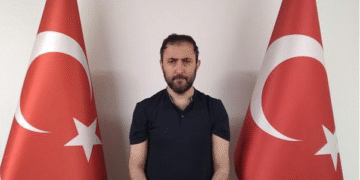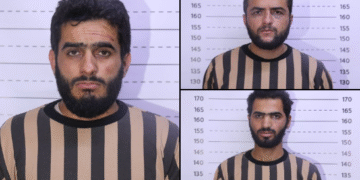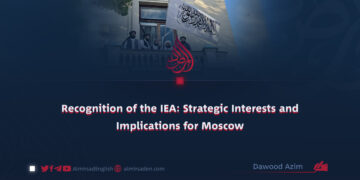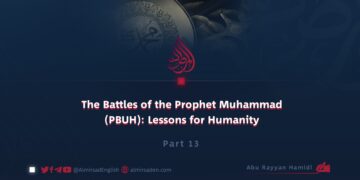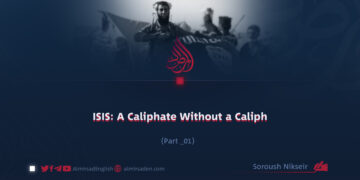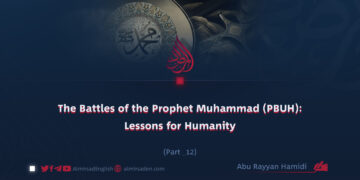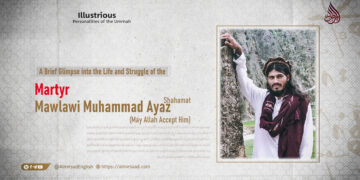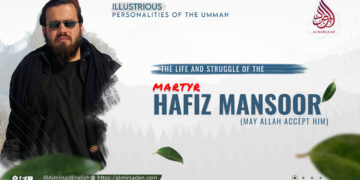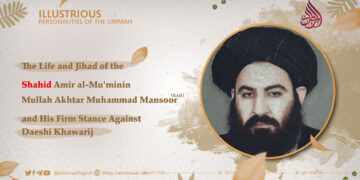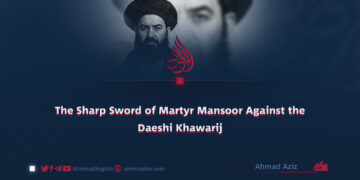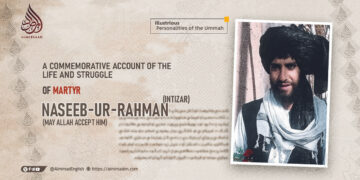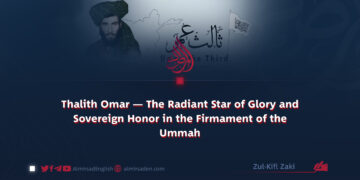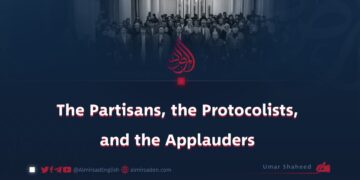Part 7
Written by: Harith Ubaydah
Love for Knowledge, Humility, and Respect for Scholars
Niẓām al-Mulk was renowned for his profound love for knowledge, particularly the science of Hadith. Despite his high rank, he would humbly declare:
“I know I am not worthy of narrating Hadith, but I wish to be counted among those who record the sayings of the Messenger of Allah (peace be upon him).”
He would regularly listen to Hadith from Qayshari bin Muslim bin Mihr bin Dawar Abu Hamid al-Zuhri and took great care to support religious scholarship. His sincere desire was for the madrasas he established to fulfill the aspirations of the Muslim Ummah and to promote harmony and justice.
When Abū al-Ḥasan Muhammad bin Ali al-Wasiti, a Shafi’i jurist, sent him several poems urging intervention to resolve the escalating conflict between the Crusaders and the al-Ashʿariyya, Niẓām al-Mulk promptly took action to restore order. One such poem implored:
یا نظام الملک قد حل بغداد النظام
وابنك القاطن فيها مستهان مستضام
وبها اودى قتلی غلام و غلام
والذي منهم تبقى سالما وفيه سهام
یا قوام الذين لم يبق ببغداد مقام
عظم الخطب و للحرب اتصال و دوام
فمتى لم تحسم والداء ايادي الحسام
ويكف القوم في بغداد قتل و انتقام
فعلى مدرسة فيها ومن فيها السلام
واعتصام بحريم لك من بعد حرام
Translation:
“O Nizam al-Mulk, the system of Baghdad has weakened and become fragile,
Your son, residing there, is humiliated and oppressed.
His daughters are being buried alive and mercilessly killed,
And those who survive bear the wounds of arrows.
O Guardian of the Faith, there is no safe refuge left in Baghdad.
The calamity is severe, and the war rages on without end.
If your sword does not sever the roots of this strife,
Bloodshed and vengeance will only escalate.
May Allah protect the madrasas and those within them,
And may He safeguard the sanctuary you hold sacred.”
In response to this earnest plea, Nizam al-Mulk swiftly intervened to restore order and quell the discord.
His assemblies were graced by scholars, jurists, and pious individuals. Despite the weight of his responsibilities, he cherished their company. When someone suggested that these gatherings distracted him from his administrative duties, he responded:
“These people are the adornment of this world and the Hereafter. If I could carry them upon my head in honor, it would still be insufficient.”
Whenever distinguished scholars such as Abu al-Qasim al-Qushayri and Abu al-Ma’ali al-Juwayni visited him, Nizam al-Mulk would rise in their honor and seat them beside him. However, when Abu Ali al-Farandi came, he would vacate his own seat and sit facing him. When asked about this distinction, he explained:
“Abu al-Qasim and Abu al-Ma’ali praise me and speak of virtues I do not possess, which inflates my ego. But Abu Ali points out my flaws and encourages me to correct them.”
Ibn al-Athir describes him as:
“A man of piety, generosity, justice, patience, and humility—one who avoided sin and was measured in speech. His gatherings were always filled with Qur’an reciters, jurists, and the righteous.”
His Devotion to Worship
Nizam al-Mulk memorized the Qur’an by the age of eleven and adhered strictly to the Shafi’i school of jurisprudence. He remained in a state of ritual purity (wudu) at all times, and after each ablution, he would perform two units of prayer (tahiyyat al-wudu).
His punctuality in observing the five daily prayers was exemplary. Upon hearing the adhan, he would immediately set aside his duties to offer his prayers. If the call to prayer was delayed, he would personally remind the muezzin—a reflection of his unwavering commitment to Salah.
This devotion to time management and the obligation of prayer reflects a high level of commitment that only those who have renounced worldly affairs and dedicated themselves to the worship of Allah can truly attain.
Allah had elevated him to a position of spiritual excellence. He once recounted a dream in which he encountered Satan and rebuked him, saying:
“May Allah destroy you! Allah created you and directly commanded you to prostrate, yet you disobeyed. Look at me—I was never commanded directly, yet I prostrate to Allah at every opportunity.”
He then recited the following poem:
من لم يكن للوصال فكل احسانه ذنوب
Translation:
Whoever does not seek nearness to the Beloved,
All his good deeds are counted as sins.
Despite his high rank, Nizam al-Mulk longed for a simple life devoted to worship. He would often say:
“I wish I had a small village with a mosque where I could retreat from worldly affairs and dedicate myself solely to the worship of my Lord.”
His Humility and Generosity
Nizam al-Mulk’s humility extended to his personal life. One evening, while dining, his brother Abu al-Qasim sat on one side, while the governor of Khorasan and a poor man with an amputated hand sat on the other. Observing the governor distancing himself from the beggar, Nizam al-Mulk invited the poor man to sit beside him and shared his meal with him.
His concern for the needy was a hallmark of his character. He regularly distributed food to the impoverished and treated them with dignity. Reflecting on the toll of advancing age, he once composed the following verse:
بعد ثمانين ليس قوة قد ذهبت شهوة الصبوة كانني والعصا بكفى موسى ولكن بلا نبوة
Translation:
After eighty, there is no strength left;
The desire for youthful pleasures has vanished.
I am like Moses, with a staff in my hand,
But without the gift of prophecy.
In another verse, he lamented:
تقوس بعد طول العمر ظهرى و داستني الليالي ای دوس قامي والعصا تمشى امامي كان قوامها وتر بقوس
Translation:
Years have bent my back with age,
And time’s harsh tread has worn me down.
I walk—my cane leads the way,
Like a bowstring stretched and drawn.
When he fell ill, the poet Ali al-Qummani visited him and recited:
اذا مرضنا نوينا كل صالحة فان شفينا فمنا الزيغ والزلل
نرجو الاله اذا و نخطه اذا امنا فما يز كولنا عمل
Translation:
When we fall ill, we vow every good deed,
But upon recovery, we return to error and misguidance.
We hope in Allah when afraid,
But in safety, we provoke His wrath.
Upon hearing these lines, Nizam al-Mulk wept and said, “This is precisely my condition.”
His Last Days and Martyrdom
On the 10th of Ramadan, 485 AH (1092 CE), Nizam al-Mulk’s life met a tragic end. As the time for Iftar (the breaking of the fast) approached, he performed the Maghrib prayer and joined a gathering for the evening meal. Present were a large group of scholars, memorizers of the Qur’an (Huffaz), Sufis, and the needy.
During the gathering, Nizam al-Mulk began to recount significant moments from Islamic history. He spoke of the era of Caliph Umar ibn al-Khattab (may Allah be pleased with him), particularly when the Muslim armies reached Nahavand—a city and mountain in present-day Iran. He described the fierce battles between the Muslims and the Persians and honored the memory of the great figures who attained martyrdom. Reflecting on their sacrifice, he remarked:
“How fortunate were those who attained martyrdom among them.”
After the meal, Niẓām al-Mulk departed the gathering and proceeded toward the women’s quarters. Accompanying him was a man named Dailami, who appeared to be seeking forgiveness or assistance. However, his intentions were treacherous. Without warning, Dailami struck Niẓām al-Mulk, fatally wounding him. His body was carried to the women’s quarters.
As he lay dying, his final words were:
“Do not kill my murderer—I forgive him. Let him recite the Kalima and surrender him to our Lord, the Most Merciful.”











